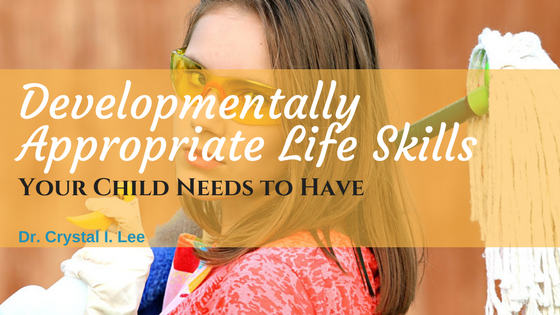You want the best for your child. You want to shelter them from pain and suffering. It pains you to see them struggle.
Sometimes in our efforts to help our children get through life unscathed, we actually do them a disservice. We’re so busy getting them from point A to point B as a happy, healthy person that we might’ve helped them become a teen or young adult with no basic life skills or resilience. Paradoxically, by trying your best to help your child successfully deal with the trials and tribulations of life, you might have inadvertently set up your child to struggle in their young adulthood.
Parents tell me all the time, “But I don’t know what I’m supposed to make them do!” There’s so much anxiety about doing the “right” thing and fear of being judged by family, friends, and strangers for their parenting choices.
The following lists are not the end all be all, nor are they comprehensive. They’re meant to give parents some guidance and take some of the guess work out of it. Use them as a starting off point and add items as you see fit that make sense for your family and culture.
If you have a middle schooler, your child should know how to:
- Stay home alone
- Change the sheets
- Plan and prepare simple meals (e.g., grilled cheese, pasta)
- Know how to read labels (on clothing, cleaning supplies, food items)
- Use basic tools (e.g., hammer, screwdriver, wrench)
- Supervise younger siblings or neighbors when an adult is in another part of the house
- Understand how to save money to make larger purchases (e.g., video game, ticket to water park)
If you have a high schooler, your child should know how to:
- Go to the store and make purchases independently
- Do laundry
- “Deep clean” the home
- Fill the car with gas
- Add air to and change a tire
- Read and understand medication labels/instructions
- Apply to a job (e.g., resume, cover letter, interview skills)
- Follow a recipe to cook semi-complex meals (e.g., stir frys, curries)
- Get around semi-independently (e.g., bike to places, use public transportation)
If you have an emerging adult ready to leave the nest, your child should know how to:
- Get around independently (e.g., drive, use public transportation, use Uber/Lyft)
- Make appointments independently
- Be fiscally responsible (e.g., maintain a bank account, use a credit card, balance a budget)
- Find a place to live (e.g., determine if an apartment is a good fit, read a lease)
- Maintain a car (e.g., schedule oil changes, bring it in when the check engine light is on)
- Get and maintain a job
When I mention these skills to parents, sometimes they cringe. Leave my middle schooler home alone?! That’s negligent! Expect my high schooler to cook dinner for the family?! He’ll burn the house down! But then I ask them to think about their childhoods and what they were doing at those ages. They realize,
Hmm, I guess I was doing most of those things at that age.
And then the conversation becomes, “What is getting in the way of expecting those things of your child at this age?” Once parents address those obstacles, they free themselves to become great supporters (not enablers) of their child’s life.
Continue reading this blog to learn more about successfully “launching” children into adulthood. Need more support in parenting your teen or young adult? Send us a message or book a free 20 minute consultation call with Dr. Barajas or Dr. Goldman to see how we can help you raise an appropriately independent child.
Please read more about parenting an emerging adult here.





